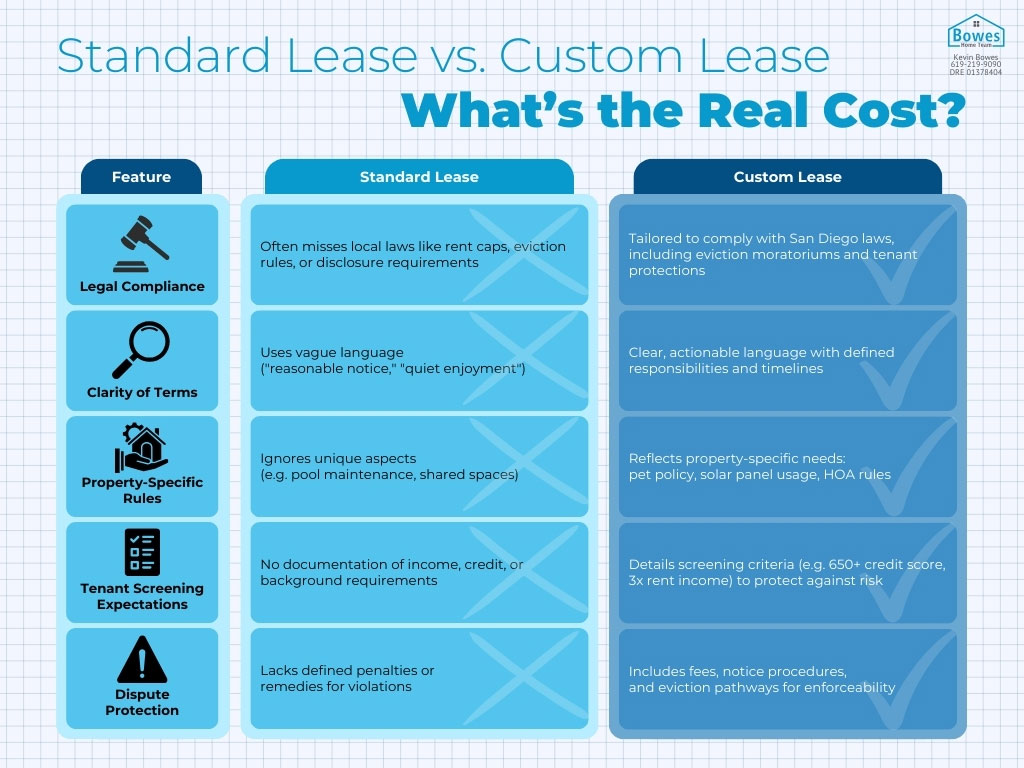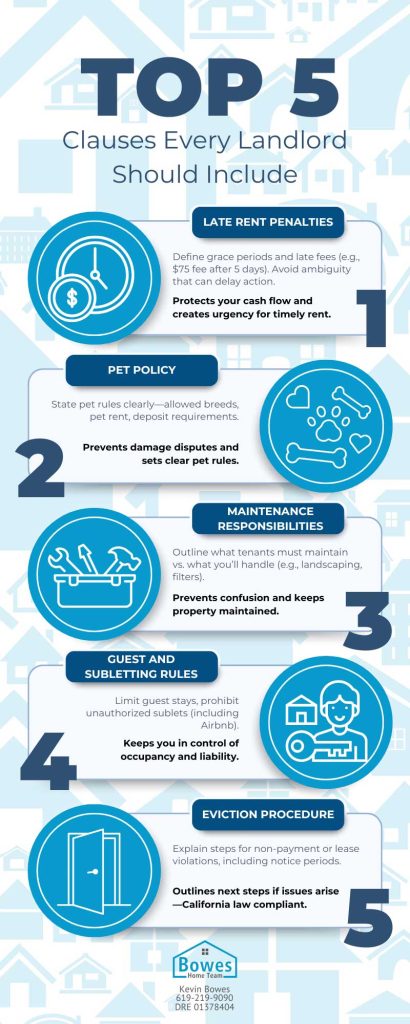A lease agreement is more than a formality—it’s the legal backbone of your rental business. For landlords in San Diego, where rental regulations are strict and tenant protections are strong, relying on a generic lease template can put your investment at serious risk.
The truth? One-size-fits-all leases often ignore local laws, leave out property-specific details, and fail to protect landlords from tenant disputes or legal penalties.
In this article, we’ll break down why custom lease agreements are essential for smart landlords—and how tailored contracts reduce risk, increase clarity, and improve tenant relationships.
Landlord-tenant laws vary from state to state—and even by city or county. In San Diego, for instance, you must navigate complex rules around:
Why it matters:
A lease that doesn’t reflect San Diego’s rental laws could be unenforceable—or worse, could leave you vulnerable to lawsuits and fines.
Custom Solution:
Tailored leases ensure all terms comply with local, state, and federal regulations, minimizing your legal exposure.

Every rental is different, and your lease should reflect that. Generic templates don’t account for the unique aspects of your property.
Common oversights in standard leases:
Real Example:
If your rental includes solar panels, a custom lease can clarify how energy credits are applied and who maintains the system.

Certain properties require custom clauses to mitigate risk. These provisions rarely appear in off-the-shelf lease templates.
Special clauses to consider:
Why it matters:
Without these protections, landlords can be held liable for issues beyond their control—or face costly damage or fines.
Ambiguity in lease agreements is a major source of landlord-tenant conflict. Generic leases often rely on unclear terms like:
Problem:
Without precise definitions, disputes are harder to resolve—and harder to win in court.
Custom Tip:
Spell out expectations with specific timelines, responsibilities, and consequences. Example:
“Tenant must notify landlord of plumbing issues within 24 hours of discovery.”
While screening happens before signing, your lease should still include clear tenant expectations.
Include in your lease:
Risk of omission:
Without documented screening criteria, landlords risk accusations of discrimination or inconsistency.
Enforcing lease terms requires clarity. A lease without defined penalties makes violations harder to address.
Your lease should include:
Example Clause:
“Rent is due on the 1st of each month. A $75 late fee applies after the 5th. Legal action may be taken if rent remains unpaid by the 10th.”
Once signed, a lease is binding. If your standard lease doesn’t include provisions for modification, you can’t simply “change the rules” mid-lease.
Risk:
Trying to enforce mid-lease changes without legal grounds can land you in court.
Custom Lease Benefit:
You can include clauses that allow for:
A well-crafted lease agreement does more than outline rent due dates—it:
In a high-demand, regulation-heavy market like San Diego, a custom lease is your first line of defense.
At BowesHomeTeam, we specialize in creating custom lease agreements tailored to San Diego’s complex rental laws. Let us help you safeguard your investment with a lease that’s clear, compliant, and built to last.
Contact us today to get started on a lease agreement that protects your property and keeps you in control!
They can be legal—but often lack necessary local disclosures or tenant protections, making them risky in cities like San Diego.
Annually, or whenever new laws or property changes occur.
Only with a tenant-signed addendum or during renewal. You can’t unilaterally modify it mid-term.
A detailed lease provides legal remedies such as fines, notices to cure, or eviction—provided these terms are clearly stated.
Not necessarily. An experienced property manager familiar with local laws can create a compliant, enforceable lease.
Your lease should incorporate HOA rules and make tenants accountable for violations.
